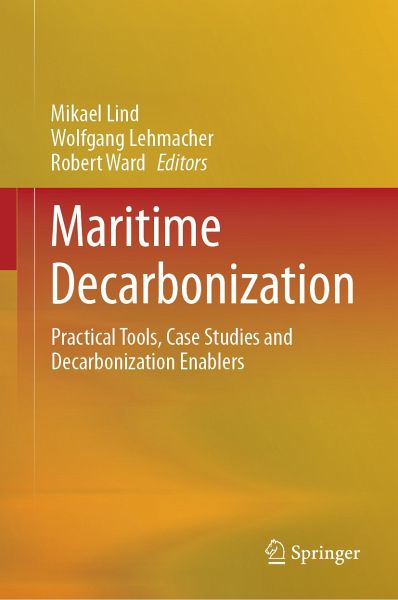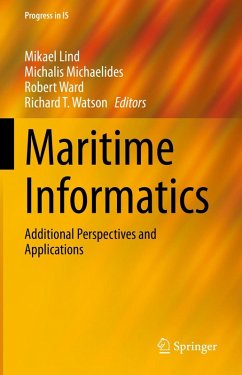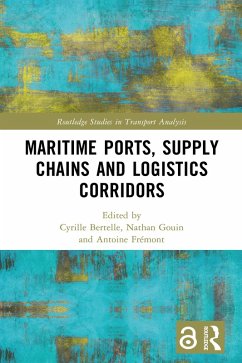
Maritime Decarbonization (eBook, PDF)
Practical Tools, Case Studies and Decarbonization Enablers
Redaktion: Lind, Mikael; Ward, Robert; Lehmacher, Wolfgang
Versandkostenfrei!
Sofort per Download lieferbar
52,95 €
inkl. MwSt.
Weitere Ausgaben:

PAYBACK Punkte
26 °P sammeln!
This volume analyses maritime decarbonization from various perspectives. It contains unique approaches and tools in four areas: scenarios, value chains, enablers, and partnerships.Decarbonization has become a very important focus in the maritime industry. Anyone that delves into the topic quickly appreciates its breadth and complexity. Minimizing greenhouse gases (GHG) emissions in maritime practices at large and doing it swiftly is far from simple. The Paris 2015 climate goals and the IMO ambitions may be the industry's guiding lights. But is this enough? Probably not. At the managerial level...
This volume analyses maritime decarbonization from various perspectives. It contains unique approaches and tools in four areas: scenarios, value chains, enablers, and partnerships.
Decarbonization has become a very important focus in the maritime industry. Anyone that delves into the topic quickly appreciates its breadth and complexity. Minimizing greenhouse gases (GHG) emissions in maritime practices at large and doing it swiftly is far from simple. The Paris 2015 climate goals and the IMO ambitions may be the industry's guiding lights. But is this enough? Probably not. At the managerial level a paradigm shift is needed: from a fixed mindset that is calling for compensation to a growth mindset that seeks to capture the benefits of decarbonization. This will require a structured approach in the form of practical frameworks and clear recommendations. In this book 75 scholars and industry and subject matter experts have joined forces to explore different scenarios, value chain designs, decarbonization enablers, and partnership models to develop frameworks and recommendations around how to effectively work and make progress. The books offers a valuable mix of theory, practical tools, and real-life cases.
Decarbonization has become a very important focus in the maritime industry. Anyone that delves into the topic quickly appreciates its breadth and complexity. Minimizing greenhouse gases (GHG) emissions in maritime practices at large and doing it swiftly is far from simple. The Paris 2015 climate goals and the IMO ambitions may be the industry's guiding lights. But is this enough? Probably not. At the managerial level a paradigm shift is needed: from a fixed mindset that is calling for compensation to a growth mindset that seeks to capture the benefits of decarbonization. This will require a structured approach in the form of practical frameworks and clear recommendations. In this book 75 scholars and industry and subject matter experts have joined forces to explore different scenarios, value chain designs, decarbonization enablers, and partnership models to develop frameworks and recommendations around how to effectively work and make progress. The books offers a valuable mix of theory, practical tools, and real-life cases.
Dieser Download kann aus rechtlichen Gründen nur mit Rechnungsadresse in A, B, BG, CY, CZ, D, DK, EW, E, FIN, F, GR, HR, H, IRL, I, LT, L, LR, M, NL, PL, P, R, S, SLO, SK ausgeliefert werden.












